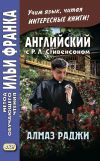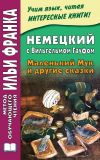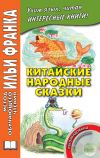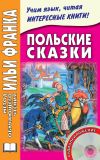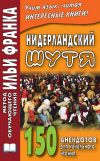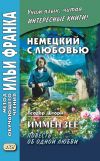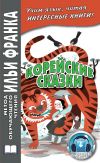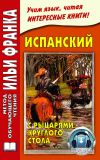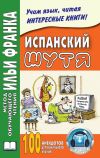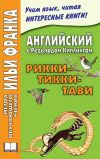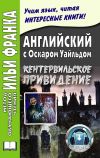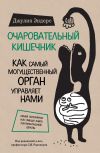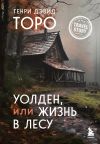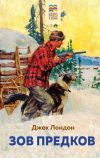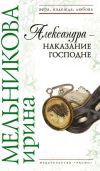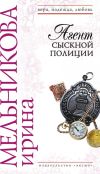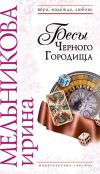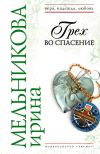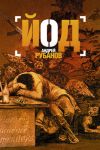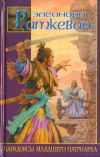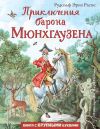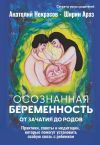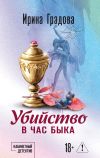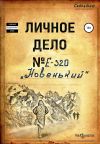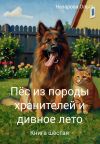
Автор книги: Энтони Хоуп
Жанр: Иностранные языки, Наука и Образование
Возрастные ограничения: 16+
сообщить о неприемлемом содержимом
Sapt raised his weapon after him (Сэпт поднял ему вслед свое оружие = свой револьвер), and there was such an expression of wistful regret on his face (и такое выражение тоскливого сожаления было = отразилось на его лице) that I had much ado not to burst out laughing (что мне стоило огромных усилий не рассмеяться; to have much ado – испытывать большие затруднения; ado – суета, суматоха; хлопоты, затруднения).
For ten minutes we stayed where we were (еще минут десять мы оставались в укрытии: «стояли там, где мы были»).

For an instant the duke hesitated.
“I thought I heard hoofs,” said he.
“I think not, your Highness.”
“Why shouldn’t we go to the lodge?”
“I fear a trap. If all is well, why go to the lodge? If not, it’s a snare to trap us.”
Suddenly the duke’s horse neighed. In an instant we folded our cloaks close round our horses’ heads, and, holding them thus, covered the duke and his attendant with our revolvers. If they had found us, they had been dead men, or our prisoners.
Michael waited a moment longer. Then he cried:
“To Zenda, then!” and setting spurs to his horse, galloped on.
Sapt raised his weapon after him, and there was such an expression of wistful regret on his face that I had much ado not to burst out laughing.
For ten minutes we stayed where we were.
“You see,” said Sapt, “they’ve sent him news that all is well (видите, ему прислали вести, что все в порядке).”
“What does that mean?” I asked (что это значит? – спросил я).
“God knows,” said Sapt, frowning heavily (Бог /его/ знает, – сказал Сэпт, сильно хмурясь; heavily – тяжело; сильно, весьма). “But it’s brought him from Strelsau in a rare puzzle (но он приехал из Стрелсо здорово озадаченным; to be in a puzzle – быть в смущении, недоумении; rare – редкий; исключительный, необычайный /разг./; puzzle – загадка, головоломка).”
Then we mounted, and rode as fast (затем мы вскочили в седла и поскакали настолько быстро) as our weary horses could lay their feet to the ground (насколько наши утомленные лошади были в состоянии переставлять ноги: «класть ноги на землю»). For those last eight miles we spoke no more (на протяжении тех последних восьми миль мы больше не разговаривали). Our minds were full of apprehension (мы: «наши умы» были полны дурных предчувствий). “All is well.” What did it mean («все в порядке» – что это означало)? Was all well with the King (было ли все в порядке с королем)?
At last the lodge came in sight (наконец, показался охотничий домик; to come in sight – появиться, показаться). Spurring our horses to a last gallop (пришпорив коней в последнем рывке; gallop – галоп; быстрая езда), we rode up to the gate (мы подскакали к воротам). All was still and quiet (все было тихо и спокойно). Not a soul came to meet us (ни одна душа не вышла встретить нас). We dismounted in haste (мы торопливо спешились). Suddenly Sapt caught me by the arm (вдруг Сэпт схватил меня за руку).
“Look there!” he said, pointing to the ground (взгляните сюда, – сказал он, указывая на землю).
I looked down (я посмотрел вниз). At my feet lay five or six silk handkerchiefs (у моих ног лежало пять или шесть шелковых платков), torn and slashed and rent (порванных и порезанных; to tear – рвать; rent – разорванный, порванный; to rend – отрывать, отдирать; рвать, разрывать). I turned to him questioningly (я повернулся к нему с вопросительным /видом/; question – вопрос).

“You see,” said Sapt, “they’ve sent him news that all is well.”
“What does that mean?” I asked.
“God knows,” said Sapt, frowning heavily. “But it’s brought him from Strelsau in a rare puzzle.”
Then we mounted, and rode as fast as our weary horses could lay their feet to the ground. For those last eight miles we spoke no more. Our minds were full of apprehension. “All is well.” What did it mean? Was all well with the King?
At last the lodge came in sight. Spurring our horses to a last gallop, we rode up to the gate. All was still and quiet. Not a soul came to meet us. We dismounted in haste. Suddenly Sapt caught me by the arm.
“Look there!” he said, pointing to the ground.
I looked down. At my feet lay five or six silk handkerchiefs, torn and slashed and rent. I turned to him questioningly.
“They’re what I tied the old woman up with (это те, которыми я связал старуху),” said he. “Fasten the horses, and come along (привяжите коней и пойдемте).”
The handle of the door turned without resistance (дверная ручка повернулась легко: «без сопротивления»). We passed into the room which had been the scene of last night’s bout (мы прошли в комнату, представлявшую собой сцену вчерашней ночной пирушки; last – последний; bout – припадок, приступ; кутеж). It was still strewn with the remnants of our meal and with empty bottles (повсюду все еще валялись остатки нашего ужина и пустые бутылки; to strew – разбрасывать; усеивать, усыпать).
“Come on,” cried Sapt, whose marvellous composure had at last almost given way (идемте, – воскликнул Сэпт, которому, в конце концов, почти изменило его удивительное хладнокровие; to give way – отступать, сдаваться).
We rushed down the passage towards the cellars (мы бросились по коридору к подвалам). The door of the coal-cellar stood wide open (дверь угольного подвала была: «стояла» открытой настежь; to stand; wide – широко).
“They found the old woman (они нашли старуху),” said I.
“You might have known that from the handkerchiefs (вы могли бы догадаться об этом по платкам),” he said.
Then we came opposite the door of the wine-cellar (затем мы подошли к двери напротив, /ведущей/ в винный погреб). It was shut (она была закрыта). It looked in all respects as it had looked (она выглядела в точности так, как выглядела; in all respects – во всех отношениях) when we left it that morning (когда мы оставили ее тем утром).
“Come, it’s all right (пойдемте, все в порядке),” said I.

“They’re what I tied the old woman up with,” said he. “Fasten the horses, and come along.”
The handle of the door turned without resistance. We passed into the room which had been the scene of last night’s bout. It was still strewn with the remnants of our meal and with empty bottles.
“Come on,” cried Sapt, whose marvellous composure had at last almost given way.
We rushed down the passage towards the cellars. The door of the coal-cellar stood wide open.
“They found the old woman,” said I.
“You might have known that from the handkerchiefs,” he said.
Then we came opposite the door of the wine-cellar. It was shut. It looked in all respects as it had looked when we left it that morning.
“Come, it’s all right,” said I.
A loud oath from Sapt rang out (громкое проклятье вырвалось у Сэпта; oath – клятва, присяга; ругательство; to ring out – прозвучать, раздаться). His face turned pale, and he pointed again at the floor (его лицо побледнело, и он снова указал на пол). From under the door a red stain had spread over the floor of the passage and dried there (из-под двери по полу коридора растеклось красное пятно, и засыхало там; to spread – распространять/ся/, простираться). Sapt sank against the opposite wall (Сэпт прислонился к стене напротив; to sink – тонуть, утопать; опускаться, падать). I tried the door (я попробовал дверь). It was locked (она была заперта).
“Where’s Josef?” muttered Sapt (где Жозеф? – пробормотал Сэпт).
“Where’s the King?” I responded (где король? – отозвался я).
Sapt took out a flask and put it to his lips (Сэпт достал флягу и поднес ее к губам). I ran back to the dining-room (я бегом вернулся в столовую), and seized a heavy poker from the fireplace (и схватил увесистую кочергу у камина). In my terror and excitement I rained blows on the lock of the door (от страха и волнения я осыпал ударами замок на двери; to rain – сыпать, литься; rain – дождь), and I fired a cartridge into it (/потом/ выстрелил в него; cartridge – патрон, заряд). It gave way, and the door swung open (он подался, и дверь широко распахнулась; to swing the door open – распахнуть дверь настежь; to swing – качать, колебать; вертеть, поворачивать).
“Give me a light,” said I; but Sapt still leant against the wall (посветите мне: «дайте мне свет», – сказал я, но Сэпт все еще /стоял/, прислонившись к стене; to lean against – прислоняться; to lean – наклоняться, нагибаться).
He was, of course, more moved than I (он, конечно же, был взволнован больше, чем я; to move – двигать, передвигать; трогать, волновать), for he loved his master (потому что он любил своего господина). Afraid for himself he was not – no man ever saw him that (за себя он не переживал: «не боялся» – ни один человек никогда этого не видел); but to think what might lie in that dark cellar (но мысли о том, что могло находиться в этом темном погребе; to think – думать) was enough to turn any man’s face pale (было достаточно, чтобы у любого побледнело лицо).

A loud oath from Sapt rang out. His face turned pale, and he pointed again at the floor. From under the door a red stain had spread over the floor of the passage and dried there. Sapt sank against the opposite wall. I tried the door. It was locked.
“Where’s Josef?” muttered Sapt.
“Where’s the King?” I responded.
Sapt took out a flask and put it to his lips. I ran back to the dining-room, and seized a heavy poker from the fireplace. In my terror and excitement I rained blows on the lock of the door, and I fired a cartridge into it. It gave way, and the door swung open.
“Give me a light,” said I; but Sapt still leant against the wall.
He was, of course, more moved than I, for he loved his master. Afraid for himself he was not – no man ever saw him that; but to think what might lie in that dark cellar was enough to turn any man’s face pale.
I went myself, and took a silver candlestick from the dining-table (я пошел сам, взял серебряный подсвечник с обеденного стола) and struck a light, and, as I returned, I felt (зажег свечу и, когда возвращался, почувствовал; to strike a light – зажечь спичку; to strike – ударять, бить; высекать /огонь/; light – свет; огонь, пламя) the hot wax drip on my naked hand as the candle swayed to and fro (что горячий воск капает на мою обнаженную руку, поскольку свеча качалась из стороны в сторону; to and fro – туда и сюда, в разные стороны); so that I cannot afford to despise Colonel Sapt for his agitation (так что я не имею права презирать полковника Сэпта за его взволнованное /состояние/).
I came to the door of the cellar (я подошел к двери, /ведущей в/ погреб). The red stain turning more and more to a dull brown, stretched inside (красное пятно, становившееся все более тусклым и бурым, тянулось внутрь; dull – скучный; тусклый, неяркий). I walked two yards into the cellar (я прошел два ярда вглубь погреба; ярд = около 0,9 м), and held the candle high above my head (держа свечу высоко над головой). I saw the full bins of wine (я увидел клети, полные вина; bin – закром, ларь; клетка для бутылок в винном погребе); I saw spiders crawling on the walls (я увидел пауков, ползущих по стенам); I saw, too, a couple of empty bottles lying on the floor (еще я увидел пару пустых бутылок, лежащих на полу); and then, away in the corner, I saw the body of a man (а потом, в дальнем углу, я увидел тело человека), lying flat on his back, with his arms stretched wide (лежащее навзничь с широко раскинутыми руками; to lie; flat – плоский, распростертый во всю длину), and a crimson gash across his throat (с глубокой темно-красного цвета раной через все горло). I walked to him and knelt down beside him (я подошел и опустился рядом с ним на колено), and commended to God the soul of a faithful man (и препоручил Богу душу верного слуги; to commend – одобрять, хвалить; вверять /поэт./; man – человек; слуга). For it was the body of Josef, the little servant, slain in guarding the King (потому что это было тело Жозефа, маленького слуги, который отдал жизнь, защищая короля: «убитого при защите короля»; to slay).
I felt a hand on my shoulders, and, turning, saw Sapt (я почувствовал, как рука /легла/ на мое плечо, и, обернувшись, увидел Сэпта), eyes glaring and terror-struck, beside me (/стоящего/ рядом с горящими глазами и объятого ужасом; to strike terror – вселять ужас).
“The King? My God! the King?” he whispered hoarsely (король? Боже мой! король? – хрипло шептал он).
I threw the candle’s gleam over every inch of the cellar (я осветил слабым пламенем свечи каждый дюйм погреба; to throw – бросать, кидать; отбрасывать /тень/, бросать /свет/; gleam – проблеск, слабый свет).
“The King is not here (короля здесь нет),” said I.

I went myself, and took a silver candlestick from the dining-table and struck a light, and, as I returned, I felt the hot wax drip on my naked hand as the candle swayed to and fro; so that I cannot afford to despise Colonel Sapt for his agitation.
I came to the door of the cellar. The red stain turning more and more to a dull brown, stretched inside. I walked two yards into the cellar, and held the candle high above my head. I saw the full bins of wine; I saw spiders crawling on the walls; I saw, too, a couple of empty bottles lying on the floor; and then, away in the corner, I saw the body of a man, lying flat on his back, with his arms stretched wide, and a crimson gash across his throat. I walked to him and knelt down beside him, and commended to God the soul of a faithful man. For it was the body of Josef, the little servant, slain in guarding the King.
I felt a hand on my shoulders, and, turning, saw Sapt, eyes glaring and terror-struck, beside me.
“The King? My God! the King?” he whispered hoarsely.
I threw the candle’s gleam over every inch of the cellar.
“The King is not here,” said I.
Chapter 7
His Majesty Sleeps in Strelsau
(Его величество спит в Стрелсо)
I put my arm round Sapt’s waist and supported him out of the cellar (я обхватил Сэпта рукой за талию: «положил мою руку вокруг талии Сэпта» и помог ему /выбраться/ из погреба; to support – поддерживать, подпирать; помогать, способствовать), drawing the battered door close after me (плотно прикрыв за собою искореженную дверь; to draw close – плотно задергивать, закрывать; battered – избитый, разбитый; to batter – колотить, дубасить). For ten minutes or more we sat silent in the dining-room (минут десять или больше мы молча сидели в столовой). Then old Sapt rubbed his knuckles into his eyes (потом старик Сэпт потер костяшками пальцев глаза), gave one great gasp, and was himself again (издал долгий вздох и снова стал самим собой; great – большой, огромный; долгий, продолжительный). As the clock on the mantelpiece struck one (когда часы на каминной полке пробили час) he stamped his foot on the floor, saying (он топнул ногой по полу и сказал):
“They’ve got the King (король у них)!”
“Yes,” said I, “ ‘all’s well!’ as Black Michael’s despatch said (да, – сказал я, – «все в порядке», как было сказано в донесении Черному Михаэлю). What a moment it must have been for him (каким /тот/ момент должен был быть для него) when the royal salutes fired at Strelsau this morning (когда этим утром в Стрелсо гремели королевские салюты; to fire – зажигать, поджигать; стрелять)! I wonder when he got the message (интересно, когда он получил это сообщение)?”
“It must have been sent in the morning (должно быть, его послали утром),” said Sapt. “They must have sent it before news of your arrival at Strelsau reached Zenda (по-видимому, его послали прежде, чем новость о вашем прибытии в Стрелсо достигла Зенды) – I suppose it came from Zenda (я полагаю, оно пришло = его послали из Зенды).”

I put my arm round Sapt’s waist and supported him out of the cellar, drawing the battered door close after me. For ten minutes or more we sat silent in the dining-room. Then old Sapt rubbed his knuckles into his eyes, gave one great gasp, and was himself again. As the clock on the mantelpiece struck one he stamped his foot on the floor, saying:
“They’ve got the King!”
“Yes,” said I, “ ‘all’s well!’ as Black Michael’s despatch said. What a moment it must have been for him when the royal salutes fired at Strelsau this morning! I wonder when he got the message?”
“It must have been sent in the morning,” said Sapt. “They must have sent it before news of your arrival at Strelsau reached Zenda – I suppose it came from Zenda.”
“And he’s carried it about all day!” I exclaimed (и он почти весь день имел его при себе! – воскликнул я; to carry – нести, носить; иметь при себе). “Upon my honour, I’m not the only man who’s had a trying day (честное слово, я не единственный человек, у которого был трудный день; trying – утомительный, трудный; to try – пытаться, стараться; утомлять, удручать)! What did he think, Sapt (о чем он думал, Сэпт)?”
“What does that matter (какое это имеет значение)? What does he think, lad, now (что он сейчас думает, парень)?”
I rose to my feet (я поднялся на ноги; to rise).
“We must get back,” I said, “and rouse every soldier in Strelsau (мы должны вернуться и поднять в Стрелсо весь гарнизон: «каждого солдата»; to rouse – поднимать, вспугивать /дичь/; поднимать, побуждать /к действию/). We ought to be in pursuit of Michael before midday (нам нужно /организовать/ погоню за Михаэлем еще до полудня).”
Old Sapt pulled out his pipe and carefully lit it (старина Сэпт вытащил свою трубку и аккуратно зажег ее; careful – заботливый; старательный, аккуратный) from the candle which guttered on the table (от свечи, оплывавшей на столе).
“The King may be murdered while we sit here!” I urged (короля могут убить, пока мы здесь сидим! – настаивал я).
Sapt smoked on for a moment in silence (с минуту Сэпт молча продолжал курить).
“That cursed old woman!” he broke out (проклятая старуха! – взорвался он; to break out – выламывать; разразиться). “She must have attracted their attention somehow (она, наверное, как-то привлекла их внимание). I see the game (я понимаю, как все было задумано; game – игра; замысел, план). They came up to kidnap the King (они приехали, чтобы похитить короля), and – as I say – somehow they found him (и – как я сказал – каким-то образом нашли его). If you hadn’t gone to Strelsau (если бы вы не поехали в Стрелсо), you and I and Fritz had been in heaven by now (то и вы, и я, и Фриц были бы к этому времени на небесах)!”
“And the King (а король)?”
“Who knows where the King is now?” he asked (кто знает, где сейчас король? – спросил он).

“And he’s carried it about all day!” I exclaimed. “Upon my honour, I’m not the only man who’s had a trying day! What did he think, Sapt?”
“What does that matter? What does he think, lad, now?”
I rose to my feet.
“We must get back,” I said, “and rouse every soldier in Strelsau. We ought to be in pursuit of Michael before midday.”
Old Sapt pulled out his pipe and carefully lit it from the candle which guttered on the table.
“The King may be murdered while we sit here!” I urged.
Sapt smoked on for a moment in silence.
“That cursed old woman!” he broke out. “She must have attracted their attention somehow. I see the game. They came up to kidnap the King, and – as I say – somehow they found him. If you hadn’t gone to Strelsau, you and I and Fritz had been in heaven by now!”
“And the King?”
“Who knows where the King is now?” he asked.
“Come, let’s be off!” said I; but he sat still (ну же, поехали! – сказал я, но он сидел неподвижно; be off – уходить, отправляться). And suddenly he burst into one of his grating chuckles (и вдруг он разразился своим скрипучим смехом; to burst into smth. – давать выход /чувствам/):
“By Jove, we’ve shaken up Black Michael (ей-богу, разозлили мы Черного Михаэля; to shake up – встряхивать; раздражать)!”
“Come, come!” I repeated impatiently (ну же, едем! – повторил я нетерпеливо).
“And we’ll shake him up a bit more,” he added (и разозлим его еще больше, – добавил он), a cunning smile broadening on his wrinkled, weather-beaten face (его морщинистое обветренное лицо расплылось в хитрой улыбке; to broaden – расширять/ся/), and his teeth working on an end of his grizzled moustache (а зубы грызли кончик: «трудились над кончиком» его седого уса). “Ay, lad, we’ll go back to Strelsau (да, парень, мы вернемся в Стрелсо). The King shall be in his capital again tomorrow (король должен быть завтра в своей столице).”
“The King (король)?”
“The crowned King (коронованный король)!”
“You’re mad!” I cried (вы с ума сошли! – вскричал я).
“If we go back and tell the trick we played (если мы вернемся и расскажем о той шутке, которую мы сыграли; trick – хитрость, обман; шутка, выходка), what would you give for our lives (сколько вы дадите за наши жизни)?”
“Just what they’re worth (только то, чего они стоят),” said I.
“And for the King’s throne (а за королевский трон)? Do you think that the nobles and the people will enjoy being fooled (вы думаете, что дворянству и народу понравится быть одураченными) as you’ve fooled them (так, как вы их одурачили)? Do you think they’ll love a King who was too drunk to be crowned (вы думаете, они будут любить короля, который был слишком пьян, /чтобы прибыть/ на коронацию), and sent a servant to personate him (и послал слугу, который выдавал себя за него; to personate – играть роль; выдавать себя за другого)?”

“Come, let’s be off!” said I; but he sat still. And suddenly he burst into one of his grating chuckles:
“By Jove, we’ve shaken up Black Michael!”
“Come, come!” I repeated impatiently.
“And we’ll shake him up a bit more,” he added, a cunning smile broadening on his wrinkled, weather-beaten face, and his teeth working on an end of his grizzled moustache. “Ay, lad, we’ll go back to Strelsau. The King shall be in his capital again tomorrow.”
“The King?”
“The crowned King!”
“You’re mad!” I cried.
“If we go back and tell the trick we played, what would you give for our lives?”
“Just what they’re worth,” said I.
“And for the King’s throne? Do you think that the nobles and the people will enjoy being fooled as you’ve fooled them? Do you think they’ll love a King who was too drunk to be crowned, and sent a servant to personate him?”
“He was drugged – and I’m no servant (он был отравлен, а я – не слуга).”
“Mine will be Black Michael’s version (я буду придерживаться версии Черного Михаэля: «моей будет версия Черного Михаэля»).”
He rose, came to me, and laid his hand on my shoulder (он встал, подошел ко мне и положил руку мне на плечо; to rise; to come; to lay).
“Lad,” he said, “if you play the man, you may save the King yet (приятель, если вы поступите, как подобает мужчине, то еще сможете спасти короля; to play the man – вести себя, как подобает мужчине; to play – играть; поступать, вести себя /каким-л. образом/). Go back and keep his throne warm for him (возвращайтесь и сохраните для него трон; to keep a place warm for smb. – сохранить место для кого-л. /временно заняв его/: «держать место теплым для кого-л.»).”
“But the duke knows – the villains he has employed know (но герцог знает, негодяи, которых он нанял, знают) – ”
“Ay, but they can’t speak!” roared Sapt in grim triumph (да, но они не могут говорить! – проревел Сэпт с мрачным торжеством).
“We’ve got ’em (они попались: «мы поймали их»; to get – доставать, получать; поймать, схватить; ’em /разг./ = them)! How can they denounce you without denouncing themselves (как они могут обвинить вас, не обвинив себя)? This is not the King, because we kidnapped the King and murdered his servant (это не король, потому что мы выкрали короля и убили его слуг). Can they say that (могут они такое сказать)?”
The position flashed on me (ситуация /вдруг/ прояснилась для меня; position – положение, позиция; ситуация; to flash – сверкать, вспыхивать; осенить, блеснуть /о догадке/). Whether Michael knew me or not, he could not speak (узнал меня Черный Михаэль или нет, он не мог /об этом/ рассказать). Unless he produced the King, what could he do (пока он не предъявил /настоящего/ короля, что он мог сделать; to produce – производить, изготовлять; предъявлять, представлять)? And if he produced the King, where was he (а если бы он и предъявил короля, то где бы он оказался)? For a moment I was carried away headlong (на мгновенье у меня закружилась голова: «меня понесло головой вперед/безудержно»); but in an instant the difficulties came strong upon me (но тут же: «через мгновение» все трудности /нашего положения/ обрушились на меня; to come upon – натолкнуться, неожиданно напасть; обрушиться; strong – сильно, решительно).
“I must be found out,” I urged (меня все равно разоблачат: «я должен быть разоблачен», – настаивал я; to find out – разузнать, выяснить; раскрыть, разоблачить).

“He was drugged – and I’m no servant.”
“Mine will be Black Michael’s version.”
He rose, came to me, and laid his hand on my shoulder.
“Lad,” he said, “if you play the man, you may save the King yet. Go back and keep his throne warm for him.”
“But the duke knows – the villains he has employed know – ”
“Ay, but they can’t speak!” roared Sapt in grim triumph.
“We’ve got ’em! How can they denounce you without denouncing themselves? This is not the King, because we kidnapped the King and murdered his servant. Can they say that?”
The position flashed on me. Whether Michael knew me or not, he could not speak. Unless he produced the King, what could he do? And if he produced the King, where was he? For a moment I was carried away headlong; but in an instant the difficulties came strong upon me.
“I must be found out,” I urged.
“Perhaps; but every hour’s something (возможно, но нам дорог каждый час; something – что-то, кое-что; нечто важное). Above all, we must have a King in Strelsau (прежде всего, в Стрелсо должен быть король: «мы должны иметь короля в Стрелсо»), or the city will be Michael’s in four-and-twenty hours (иначе город будет /принадлежать/ Михаэлю через двадцать четыре часа), and what would the King’s life be worth then – or his throne (и чего тогда будет стоить жизнь короля или его трон)? Lad, you must do it (приятель, вы должны это сделать)!”
“Suppose they kill the King (а что, если они убьют короля; to suppose – предполагать, допускать; suppose (that) – а что, если, допустим, что)?”
“They’ll kill him, if you don’t (они его убьют, если вы не сделаете этого = не выдадите себя за него).”
“Sapt, suppose they have killed the King (Сэпт, а если они его уже убили)?”
“Then, by heaven, you’re as good an Elphberg as Black Michael (тогда, ей-богу, вы такой же Эльфберг, как и Черный Михаэль; as good as – все равно что, фактически), and you shall reign in Ruritania (и должны править в Руритании)! But I don’t believe they have (но я не думаю, что они уже /это сделали/); nor will they kill him if you’re on the throne (они его и не убьют, если вы будете на троне). Will they kill him, to put you in (/разве/ они его убьют, чтобы возвести на трон вас; to put in – вкладывать, вложить; поставить /у власти, на должность/)?”
It was a wild plan – wilder even and more hopeless (это был сумасбродный план – более сумасбродный и более безнадежный) than the trick we had already carried through (чем тот трюк, который мы уже исполнили; to carry through – осуществлять, проводить); but as I listened to Sapt I saw the strong points in our game (но по мере того, как я слушал Сэпта, я замечал сильные моменты в нашей игре; point – точка; пункт, момент). And then I was a young man and I loved action (и к тому же я был молод и легок на подъем: «и любил действовать»; to love – любить; находить удовольствие /в чем-л./; action – действие, поступок; /бурная/ деятельность), and I was offered such a hand in such a game (и мне предложили такую роль в такой игре; hand – рука; роль, участие) as perhaps never man played yet (какую, наверное, еще не играл ни один человек).
“I shall be found out (меня разоблачат),” I said.

“Perhaps; but every hour’s something. Above all, we must have a King in Strelsau, or the city will be Michael’s in four-and-twenty hours, and what would the King’s life be worth then – or his throne? Lad, you must do it!”
“Suppose they kill the King?”
“They’ll kill him, if you don’t.”
“Sapt, suppose they have killed the King?”
“Then, by heaven, you’re as good an Elphberg as Black Michael, and you shall reign in Ruritania! But I don’t believe they have; nor will they kill him if you’re on the throne. Will they kill him, to put you in?”
It was a wild plan – wilder even and more hopeless than the trick we had already carried through; but as I listened to Sapt I saw the strong points in our game. And then I was a young man and I loved action, and I was offered such a hand in such a game as perhaps never man played yet.
“I shall be found out,” I said.
“Perhaps,” said Sapt (возможно, – сказал Сэпт). “Come! to Strelsau (едем! в Стрелсо)! We shall be caught like rats in a trap if we stay here (нас поймают, как крыс в ловушку, если мы останемся здесь).”
“Sapt,” I cried, “I’ll try it (Сэпт, – воскликнул я, – я постараюсь это /сделать/)!”
“Well played (молодец: «хорошо сыграно»)!” said he. “I hope they’ve left us the horses (надеюсь, они оставили нам лошадей). I’ll go and see (пойду взгляну).”
“We must bury that poor fellow (мы должны похоронить того беднягу),” said I.
“No time (нет времени),” said Sapt.
“I’ll do it (я это сделаю).”
“Hang you!” he grinned (черт бы вас побрал! – осклабился он). “I make you a King, and – Well, do it (я делаю вас королем, а… ладно, поступайте, как хотите: «делайте это»). Go and fetch him, while I look to the horses (идите и принесите его, пока я взгляну на лошадей). He can’t lie very deep, but I doubt if he’ll care about that (/мы/ его не сможем закопать очень глубоко: «он не может лежать очень глубоко», но я сомневаюсь, что его это /сильно/ обеспокоит). Poor little Josef (бедный малыш Жозеф)! He was an honest bit of a man (он был честным человеком; bit – кусочек, частица; небольшое количество).”
He went out, and I went to the cellar (он вышел, а я пошел к погребу). I raised poor Josef in my arms and bore him into the passage (я поднял беднягу Жозефа на руки и вынес его в коридор) and thence towards the door of the house (а оттуда – к двери дома). Just inside I laid him down (/войдя/ внутрь, я тут же положил его на пол), remembering that I must find spades for our task (вспомнив, что нужно найти лопаты для этого: «для нашего» дела; task – задача, задание; дело). At this instant Sapt came up (в ту же минуту подошел Сэпт).
